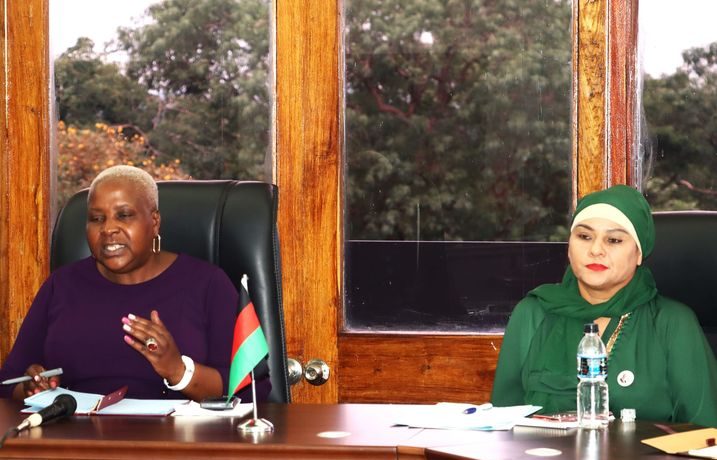This year, the occurrence of Cholera outbreaks is relatively sporadic, indicating a degree of containment. Nonetheless, Minister of Health Khumbize Kandodo Chiponda emphasizes the need for Malawi to pinpoint key areas for comprehensive interventions in tackling cholera, aiming for a lasting solution to the recurrent outbreaks.
Chiponda made these remarks on Friday at the Ministry of Health headquarters in Lilongwe during a press briefing of the Presidential Taskforce on Covid-19 and Cholera. The briefing aimed to provide updates on the cholera status in Malawi, particularly with the intensification of the rainy season.
Chiponda pointed out that during every rainy season, the nation grapples with cholera outbreaks, stressing the necessity for a shift towards implementing permanent measures for cholera control. She also highlighted the government’s commitment to the global objective of eradicating cholera by 2030.
“Identifying priority areas for multi-sectoral interventions is of paramount importance for effective cholera control in Malawi, hence concentrating our limited resources and interventions in areas with heightened vulnerability will enable a more focused and efficient response to cholera threats,” said Chiponda.
She further said there are several other interventions that can be used to bring long-term solution to cholera outbreaks, such as sustained political will and leadership, resource mobilisation, community engagement, strengthening coordination and stakeholder involvement, among others.
“As you have observed time and again that the President remains highly engaged and dedicated to the prevention and control of cholera in this country and I, as the Minister of Health, and my colleagues, the Minister of Water and Sanitation, all members of the presidential taskforce and technical experts remain actively alert and involved in the fight against cholera,” said Chiponda.
Chiponda also said that the media are one of the major stakeholders that can be used in combating cholera outbreaks through dissemination of important hygienic messages.
She therefore asked the media to highlight the risk factors for cholera, such as use of unsafe water, poor food hygiene, poor sanitation and low usage of pit latrines, which the public needs to know and prevent at all cost.
Minister of Water and Sanitation Abida Mia added that her ministry is doing all it can to fight cholera outbreaks through provision of boreholes in districts and rural areas so that people can have access to safe and clean water for use.
“My ministry has been engaging with CEOs for water boards to ensure that they provide water to people at all times because water interruptions can also lead to cholera outbreak, as it was the case in last year’s outbreak whereby most people affected were in the cities of Blantyre, Lilongwe and partly Mzuzu,” said Mia.
Currently, the cholera outbreak situation in the country remains very low and sporadic, far much better that at the same time last year.













